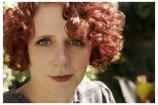The Hand That First Held Mine
Review
The Hand That First Held Mine
It is not always a compliment to say that a novel reminds you of a film. It can mean that the book is fast-moving but shallow. Not so for THE HAND THAT FIRST HELD MINE. It is cinematic in the best sense, meaning that it borrows the film director’s capacity to manipulate time and place and his or her use of brilliant images to evoke interior states. In fact, its narrator (unnamed, omniscient) quite consciously shows us the characters and their setting as if from a perch behind a camera. The very first scene pans the countryside of southern England in the mid-1950s, then moves in for a close-up on 21-year-old Alexandra, soon to encounter a magazine editor from London called Innes Kent and to be dubbed Lexie --- a new name for a new life.
Lexie goes to the big city, begins an affair with Innes, becomes a writer --- becomes, in effect, her own woman. Her blossoming has a marvelously exuberant quality. Although the story has a vintage flavor --- I imagine Lexie played by Vivian Leigh, with Trevor Howard or Dirk Bogarde as Innes, in one of those Brief Encounter-like films --- it simply feels authentic; there are no clumsy “period” descriptions. In an interview, Maggie O’Farrell has talked about researching the period, particularly the different vocabulary and cadences of speech, but says, “There’s a terrible temptation, once you’ve done all this collecting of interesting details, to shoehorn in as much of it as you can. … Most research you have to throw out. But you still need to do it, to give yourself confidence and scaffolding.” (I wish I could bottle those sentences and hand them out to every historical novelist on earth!)
This book has not one heroine, but two. The chapters alternate between Lexie and Elina, an artist and new mother, originally Finnish, living in London 50 years later --- in other words, today (I picture this contemporary narrative as a gauzier, less talky film, more introspective, maybe with subtitles). We find her floating in a semi-hallucinatory state following the birth of her son, Jonah, suffering not just from exhaustion but from a peculiar amnesia about the exact circumstances of his delivery. O’Farrell has firsthand knowledge of the disorienting state of mind that assaults the first-time parent (“I don’t write autobiographically,” she says, but “[t]he scenes about motherhood I couldn’t … have written without having been a mother myself”), and she evokes Elina’s bewilderment, tenderness and alienation from her former self with great delicacy and skill.
The mood of the stories may be different, but O’Farrell’s protagonists are linked in several crucial ways. Both are at a point of enormous and almost instantaneous change (Lexie’s decision to go to London, Elina’s sudden immersion in motherhood). Both have a passion for their work (an important theme of the novel is the tension between parenthood and one’s profession). And since Lexie, too, ultimately becomes a mother, both struggle to define what it means to have a child: “We lose muscle tone, sleep, reason, perspective,” writes Lexie after her son, Theo’s, birth, in a newspaper column called “From the Frontline of Motherhood.” “Our hearts start to beat outside our bodies. They breathe, they eat, they crawl and --- look! --- they walk, they begin to speak to us….” Ten pages later Elina muses inwardly on the same question: the almost unendurable fatigue, loneliness and mess of being Jonah’s mother, but also “this fierce spring in her, this feeling that isn’t covered by the word ‘love,’ which is far too small for it.”
The double narrative is, I suppose, a gimmick (but the same could be said of the layered stories in Michael Cunningham’s splendid THE HOURS, of which this novel is somewhat reminiscent). I wonder whether O’Farrell began with both women or started with Lexie, whose story has more vitality and bite, and added Elina later on. And yet, the split focus is not just a gimmick; what O’Farrell is doing, besides weaving a magically absorbing plot, is to evoke the dense strata of experience --- the way a person’s past seems to invade and weigh upon the present.
Curiously, the prime example of this in THE HAND THAT FIRST HELD MINE isn’t one of the women, but Ted, Elina’s companion and Jonah’s father. Although Ted’s body is not altered and taken over like Elina’s, his mind is equally captured by the process of becoming a parent. His early childhood has long been a blank to him, but with Jonah’s birth he begins to have flashes of memory, and these become the clues that connect the two women’s stories. I won’t say more, for this book, while hardly a thriller, is genuinely suspenseful; one senses the plot lines converging but isn’t sure quite how they will fit.
The novel is much more than a skillful puzzle, though: I was tremendously moved by its mix of romance and realism (even the quirky title sounds like an ironic love song). All the potential misery and untidiness of passionate relationships --- between man and woman; between parent and child --- is acknowledged. And yet, in THE HAND THAT FIRST HELD MINE, love also becomes a way to rediscover a lost past, transcend your limits, or transform your life.
Reviewed by Kathy Weissman on January 24, 2011
The Hand That First Held Mine
- Publication Date: January 26, 2011
- Genres: Fiction
- Paperback: 360 pages
- Publisher: Mariner Books
- ISBN-10: 0547423187
- ISBN-13: 9780547423180





